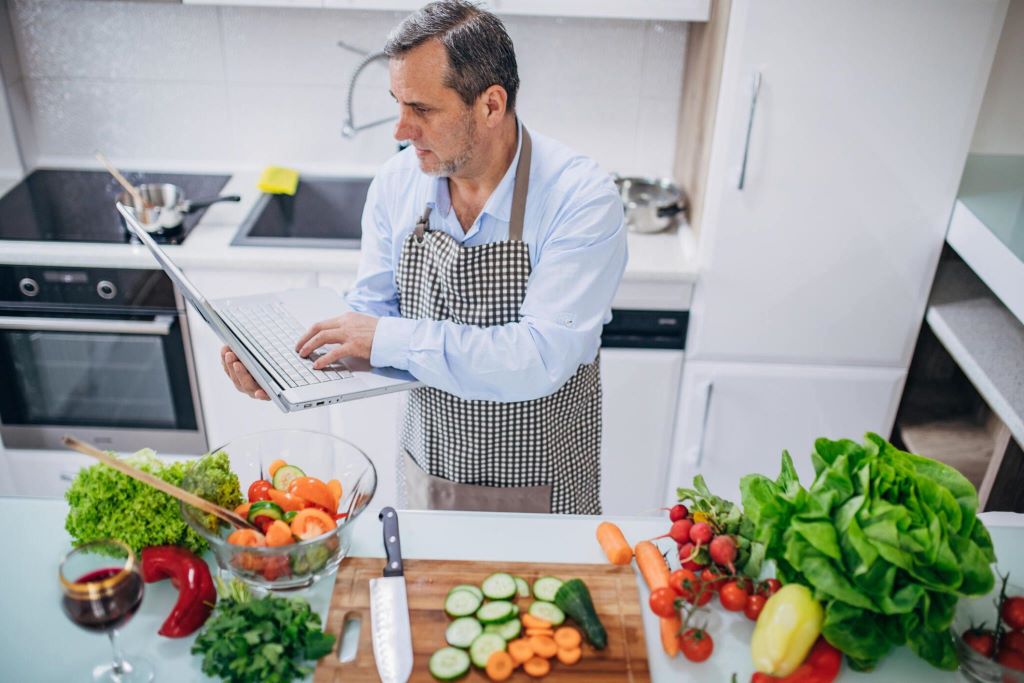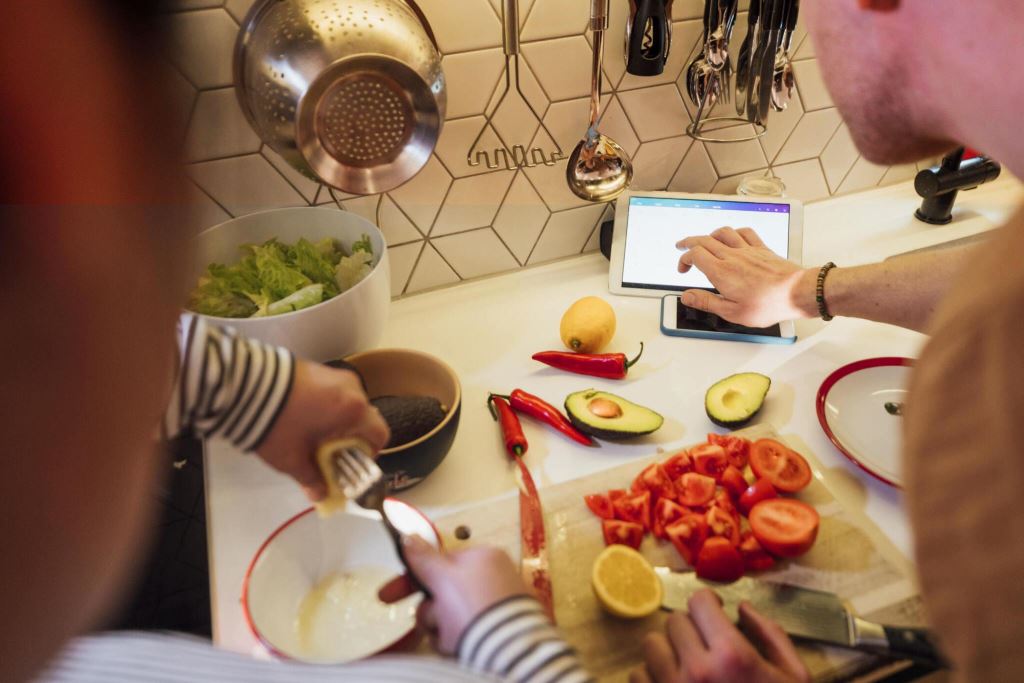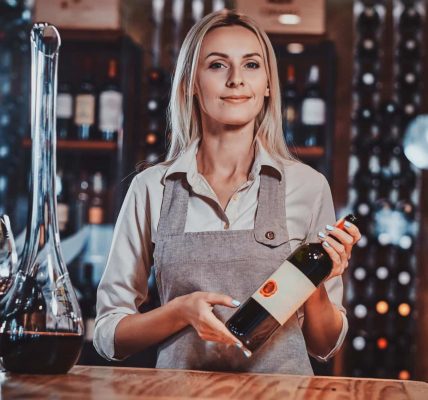Financial Growth Opportunities: How Online Cooking Lessons Enhance Business Potential
In this era of technology the fusion of arts and digital advancements has opened up opportunities for financial growth. Online cooking lessons, once considered a pastime for hobbyists, are now emerging as an avenue for businesses to expand their reach and tap into the market.
This article explores the growth that comes with offering online cooking classes delving into various aspects that make this venture promising.
The Emergence of Online Cooking Lessons
The rise of cooking lessons represents a shift in culinary education. Recognizing how virtual platforms provide accessibility and flexibility enhances the learning journey allowing people from all walks of life to develop their skills.
1. Accessibility and Convenience
In today’s world accessibility and convenience are factors in education. Understanding how online platforms offer access to a range of cooking resources creates more opportunities for aspiring chefs and home cooks to learn and grow.
- Breaking Geographical Barriers: Online cooking lessons eliminate geographical limitations enabling businesses to reach a global audience without being bound by a physical location.
- Flexible Learning: By offering lessons learners gain flexibility to access content at their convenience. This accommodates schedules and time zones.
2. Diverse Culinary Offerings
Culinary education now offers an array of courses catering to tastes and interests. Appreciating how these varied offerings cater to preferences promotes exploration and mastery of culinary styles and techniques.
- Specialized Courses: Businesses can provide an array of courses covering cooking skills to advanced techniques and specific cuisines. This caters to interests and skill levels.
- Customized Learning Paths: Learners have the freedom to choose learning paths based on their preferences. This creates an experience tailored just for them.

Business Opportunities in Online Cooking Classes
The business potential for cooking classes is on the rise. Acknowledging how entrepreneurs tap into the growing demand, for education highlights the exciting opportunities that exist in this ever evolving culinary landscape
1. Pay Per Course Approach
The approach of paying per course in online cooking education brings about a change to the fee structure. By understanding how this model provides flexibility and affordability learners can access skills without being limited by financial constraints.
- Making Money from Individual Classes: By adopting a pay per course model businesses can earn revenue each time a learner enrolls in a class.
- Tiered Pricing Structure: Implementing a pricing system for courses ensures flexibility catering to learners with varying budgetary constraints.
2. Subscription Based Models
Subscription based models in online cooking education offer access to a range of courses. By understanding how this approach provides flexibility and value it encourages learning and exploration for enthusiasts.
- Consistent Income Stream: Offering subscription based models guarantees a stream of income with learners paying recurring fees for access to a library of courses or premium content.
- Membership Benefits: Subscribers can enjoy perks such as recipes, live Q&A sessions with chefs and discounts on merchandise.
Collaborations and Partnerships
Collaborations and partnerships in online cooking education amplify the opportunities for learning. By understanding how alliances between platforms, chefs and culinary experts enrich the landscape it creates a dynamic learning environment.
1. Chef Collaborations
Collaborating with chefs in online cooking education enhances the learning experience. By understanding how these chefs contribute their expertise and diverse culinary perspectives it adds authenticity and depth to cooking classes.
- Working with Renowned Chefs: Partnering with known chefs to offer courses or virtual cooking events enhances the credibility of the platform and appeals to a wider audience.
- Sharing Revenue: Establishing agreements to share revenue with collaborating chefs creates a partnership.

2. Sponsorship and Advertisements
Sponsorship and advertising are crucial for maintaining the quality of cooking education. It’s important to understand how strategic partnerships and sponsorships contribute to the sustainability of programs as this enriches the learning environment for enthusiasts.
- Sponsored Content: Collaborating with food and kitchenware brands for sponsored content or featuring their products in lessons provides a source of income.
- Advertisements in Lesson Content: Integrating non intrusive advertisements within the lessons can generate revenue without compromising the learning experience.
High Quality Production
Having high quality production is key to the success of cooking classes. Recognizing how polished visuals, engaging content and professional presentation enhance the learning experience ensures a captivating journey.
1. Professional Video Production
Professional video production is fundamental in creating cooking classes. Understanding how produced videos improve clarity, engagement and instructional value enhances the learning experience for aspiring chefs.
- High-Quality Video Content: Investing in video production ensures appealing and engaging lesson content taking the learning experience to new heights.
- Cinematic Presentations: Creating lessons with presentations, clear visuals and professional editing adds value. Attracts learners who are looking for a premium learning experience.
2. Interactive Learning Features
Interactive learning features redefine the experience of cooking education. Understanding how features, like sessions, Q & A sessions and forums promote real time engagement enhances the effectiveness and enjoyment of learning.
- Live Cooking Demonstrations: Including cooking demonstrations allows instructors to interact with learners, in time fostering engagement and providing immediate feedback.
- Virtual Cooking Challenges: Introducing virtual cooking challenges during lessons brings an element of excitement and competition which encourages participation.
Personalized Feedback and Support
Effective online cooking education relies heavily on personalized feedback and support. It’s crucial to comprehend how instructors offer guidance as it enhances learners’ culinary skills and boosts their confidence creating an enriching learning experience.
1. Interaction between Instructors and Students
The interaction between instructors and students plays a role in cooking education. Understanding how engagement fosters a dynamic learning environment is key to improving the journey for aspiring chefs.
- Personalized Feedback: Promoting interaction between instructors and students to provide feedback establishes a learning environment enhancing the value that learners gain.
- Q&A Sessions and Discussion Forums: Providing platforms for learners to ask questions, share experiences and engage in discussions with both instructors and fellow learners fosters a sense of community.
2. Certifications and Achievements
Certifications and achievements in online cooking education hold value for learners’ culinary skills. Recognizing how these credentials enhance credibility and open up career opportunities serves as motivation for individuals to excel in their pursuits.
- Recognized Certifications: Offering recognized certifications upon completing a course adds value for learners who seek recognition of their skills.
- Virtual Achievements: Introducing badges or achievements for reaching specific milestones motivates learners while boosting their sense of accomplishment.
Social Media Engagement
Social media platforms like Instagram, Facebook and Twitter play a role in shaping the online cooking education experience. Realizing how these platforms foster community, enable recipe sharing and showcase creations adds depth to the learning process.
1. Content Marketing
Content marketing serves as a driver behind online cooking education. Gaining insights into how informative content across channels attracts and engages learners contributes to the overall success of culinary programs.
- Sharing Visual Content: Utilizing platforms like Instagram and Pinterest to share appealing content such as recipe highlights, behind the scenes footage and success stories helps attract an audience.
- Previews of Recipes: Offering glimpses into lessons or showcasing snippets from the learning experience builds anticipation, among users encouraging them to engage actively.

Email Marketing Strategies
Email marketing plays a role in the success of cooking education. It’s important to grasp how personalized and informative emails can engage learners, provide updates and promote courses to drive growth.
1. Targeted Promotions
Effective targeting is key, in the world of cooking education. Understanding how tailored marketing campaigns attract audiences and effectively communicate the value of courses helps boost enrollment and program success.
- Newsletter Subscriptions: Building a list of email subscribers enables businesses to send promotions updates, about courses and exclusive discounts all of which contribute to customer retention.
- Drip Campaigns: By implementing drip campaigns that gradually introduce learners to the platform’s benefits and entice them to enroll conversion rates can be enhanced.
Analyzing User Behavior
Utilizing user behavior analysis as a tool optimizes online cooking education. Understanding how insights derived from data inform course development, marketing strategies and user engagement promotes improvement in the learning experience.
1. Analysis of the Learning Journey
Analyzing the learning journey is essential for refining cooking education. Understanding how evaluating the entire educational experience informs enhancements ensures that culinary programs consistently evolve for the benefit of learners.
- Tracking User Progress: By analyzing the progress of users, within courses we can gain insights into which lessons are popular, identify areas where learners may face challenges and uncover opportunities for improvement.
- Identifying Points of Disengagement: It is crucial to understand when and where learners tend to disengage. This knowledge enables businesses to address challenges and enhance lesson content in order to improve retention rates.
Conversion Rate Optimization
The success of online cooking education relies heavily on conversion rate optimization. It’s important to grasp how strategic adjustments to web design and content can effectively increase the number of enrollments thus improving programs overall.
1. Improving Landing Pages
Enhancing the performance of landing pages is crucial for online cooking education to thrive. Understanding the significance of optimized and captivating landing pages in providing an user experience and driving more enrollments is vital for program success.
- A/B Testing: By conducting A/B tests on landing pages, course descriptions and promotional materials we can refine our strategies to attract learners effectively.
- Enhancing Calls to Action: It’s crucial to ensure that our platform has compelling calls to action that encourage users to enroll in courses or subscribe to memberships.
Conclusion
In conclusion the combination of education and technology offers financial growth opportunities for businesses providing online cooking lessons. By embracing revenue streams, improving the learning experience, implementing marketing strategies and leveraging data analytics businesses can establish a strong presence in the competitive landscape of online culinary education.






